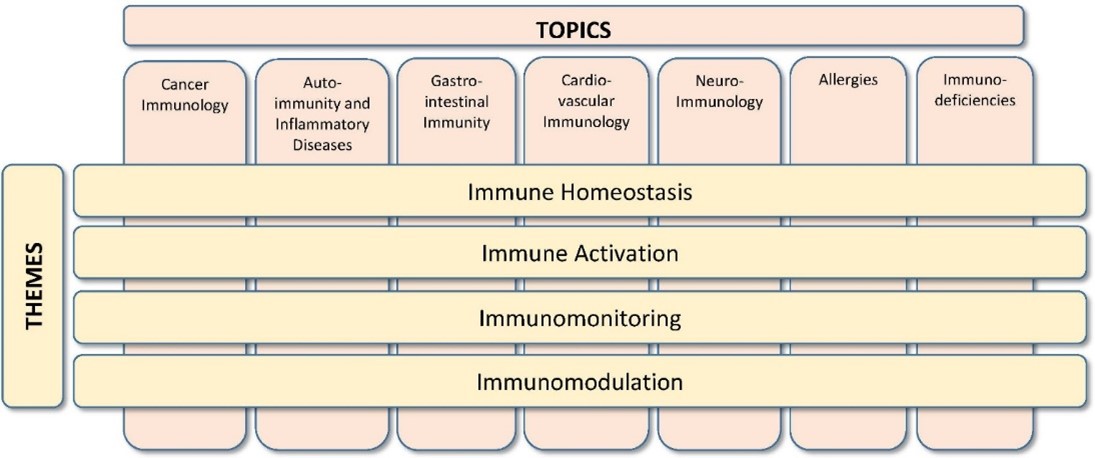Advancing the frontiers of immunology to unlock the secrets of the immune system and harness its power for better health
Aim
Our mission is to facilitate collaboration between (pre)clinical researchers and clinicians, aiming to understand the complexities of the immune system. By leveraging this understanding, we aim to combat immune-mediated disorders ranging from cancer and allergies to autoimmune diseases.
Organizational structure of the Immunology program
At the core of our program are four main themes that define our research focus. These themes serve as the backbone of our program and guide our investigations into the diverse facets of immunology.
Themes
1. Immune Homeostasis
This theme centers around everything required for the for the immune system’s optimal function from development through adulthood.
2. Immune Activation
The research within this theme explores the processes and mechanisms that trigger and regulate the immune system's response to pathogens, as well as the deregulation of immune responses in cancer and autoimmunity.
3. Immunomonitoring
The Immunomonitoring theme focuses on monitoring and analyzing the activity of the immune system to better understand health and disease dynamics.
4. Immunomodulation
This theme explores and develops strategies and mechanisms to modify and regulate the immune system's activity to achieve therapeutic benefits.
Topics
To further enhance our research endeavors, these themes are integrated into seven specific topics:
- Cancer Immunology
- Autoimmunity and Inflammatory Diseases
- Gastrointestinal Immunology
- Cardiovascular Immunology
- Neuro-Immunology
- Allergies
- Immunodeficiencies
This matrix structure allows us to explore the multifaceted nature of immunology across various disease states, fostering collaboration and cross-disciplinary synergy. Through this integrated approach, we aim to advance our understanding of the immune system and translate this knowledge into tangible solutions for improving human health.
















